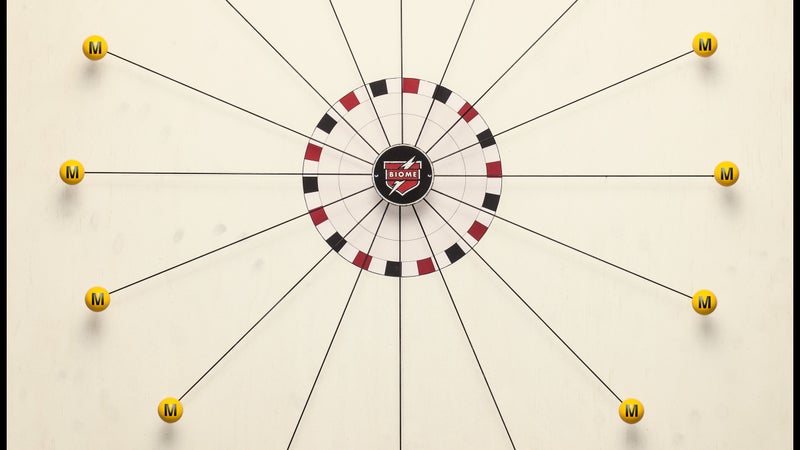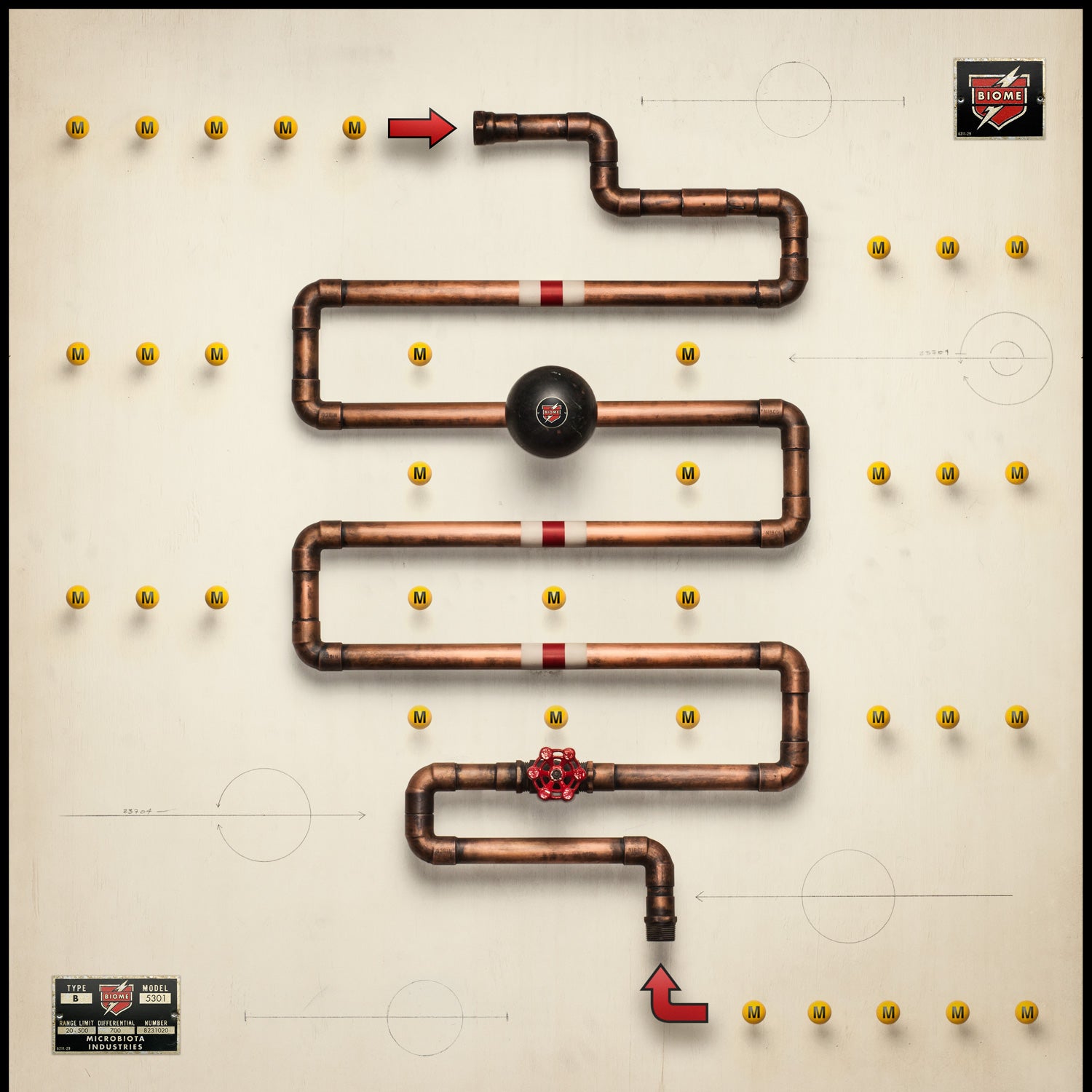Some of the challenges runners faced in the 140-day earlier this year were to be expected: traversing 8,000-foot mountain passes, popping countless blisters, and dealing with accumulating fatigue while covering the vast 3,098-mile distance between Huntington Beach, California, and the Chesapeake Bay in Maryland. Others, not so much, like the arrival every few weeks of sample-collection kits packed in dry ice, which racers were required to fill up with their own feces and FedEx back to a lab at the University of California at San Francisco within 24 hours.
“You’re focused on your daily routine,” recalls Bryce Carlson, a anthropologist who both competed in the race and coordinated the research project with fellow runners, “and now you’re being asked to poop on command.”
The project’s goal was to study how the grueling race affected the athletes’ microbiota, the trillions of bacteria that live in and on each of us. It’s well established that microbes play a crucial role in digestion, immune function, and even brain chemistry, but only recently have scientists begun to explore how and why they might affect physical performance, too. And vice versa.

The microbiota of an elite athlete, it turns out, may be quite different from that of a sedentary person. Last year, Irish researchers compared the gut microbes of 40 professional rugby players with nonathlete controls and found that the rugby players had, on average, twice the microbial diversity. It’s unclear whether it was training, diet, or something else that accounted for the difference, but a recent study on mice at the suggests that exercise has a direct effect on the variety of a person’s microbes.
More heterogeneous microbiota could be beneficial to athletes for many reasons. Taiwanese researchers found that mice with greater diversity in their gut flora lasted longer in a swim-to-exhaustion test and produced more antioxidant enzymes to protect their bodies from the stress of intense exercise. And a study found that runners performed better on a treadmill in 95-degree heat after taking a multistrain probiotic for four weeks. Bacteria leak from the gut into the bloodstream during strenuous activity, explains lead researcher Cecilia Kitic, causing inflammation that can raise core temperature. By making the gut lining healthier, the probiotics appear to help the body tolerate hot conditions. The microbes in your gut also release hormones like dopamine, seratonin, and noradrenaline into your bloodstream, and they play a key role in teaching your immune system to distinguish between friendly and harmful bacteria.
None of this research has established a definitive link between improving your microbiota and finding a spot on the podium at your next race. Still, if you’re a serious athlete, it’s clear that you need to pay attention to this stuff. One way to do that: immune support. Probiotics can increase levels of gut microbes associated with immune function to keep you from getting sick during heavy training. The evidence points to “small, variable benefits” for athletes, says David Pyne, a physiologist at the , primarily in warding off gastrointestinal illness. Pyne and his colleagues also found that runners taking Lactobacillus fermentum, a probiotic used in supplements, cut incidence of respiratory illness in half during a four-month winter training block.
Just as important is holding on to the microbes you’ve already got. Helpful bacteria on the back of your tongue convert nitrate from food into a form that makes aerobic exercise more efficient. That’s why top marathoners and other endurance athletes drink nitrate-rich beet juice before competing. But you won’t get any benefit from dietary nitrate if you’ve , which you can do even with weak, nonprescription mouthwash, according to a study published in September by Sinead McDonagh and her colleagues at the University of Exeter. After the study came out, about 50 people at Exeter—mostly athletes and fellow researchers—stopped using mouthwash.
Currently, the stool samples from the Race Across USA runners are being sequenced to reveal the genes and bacterial communities present. When the analysis is complete, the results will offer the first look at what serious endurance exercise does to your microbes. Given the mounting evidence about their importance, Carlson’s curiosity is as much personal as professional. “I have a research interest,” he says, “but I’m also a runner.”
Four Tips on Optimizing Your Bacteria
From Cleveland Clinic sports nutritionist Jennifer Sygo
- “Fermented foods contain bacteria that can help build a healthy gut. So load up on yogurt, kefir, sauerkraut, miso soup, tempeh, and kombucha.”
- “Eat onions, leeks, chia seeds, bananas, artichokes, and honey. They contain nondigestible carbohydrates that serve as food for probiotics.”
- “Take a wide-spectrum probiotic that contains both lactobacillus and bifidobacterium, which provides the intestines with healthy bacteria.”
- “Don’t use antibacterial soaps. Not only is there little evidence that they provide more benefit than regular soap and water, but there are also concerns that they could breed antibiotic resistance.”


